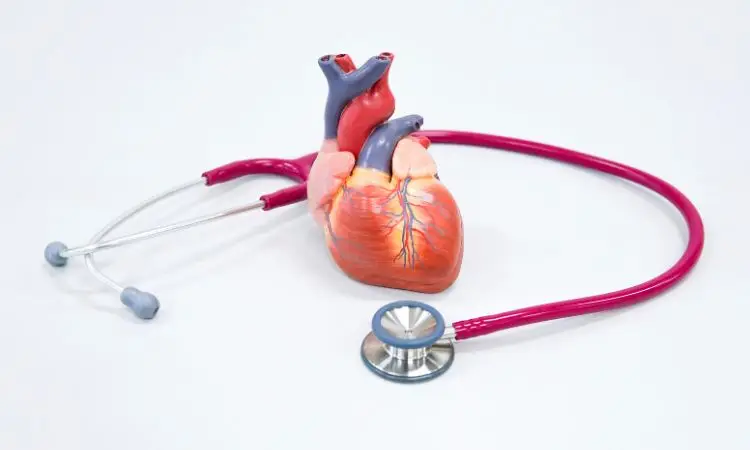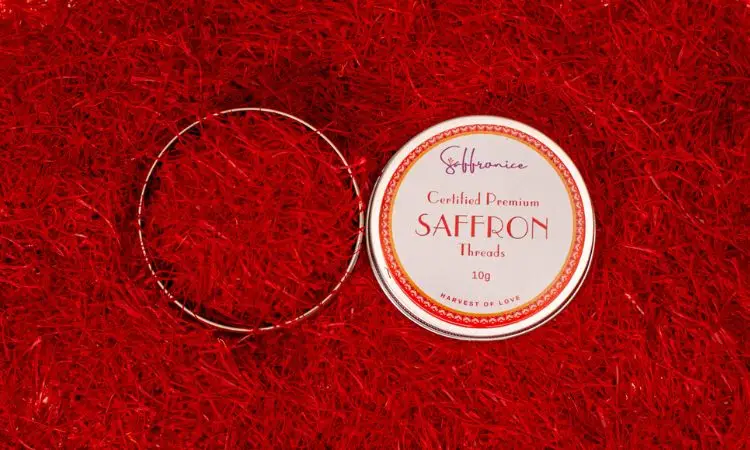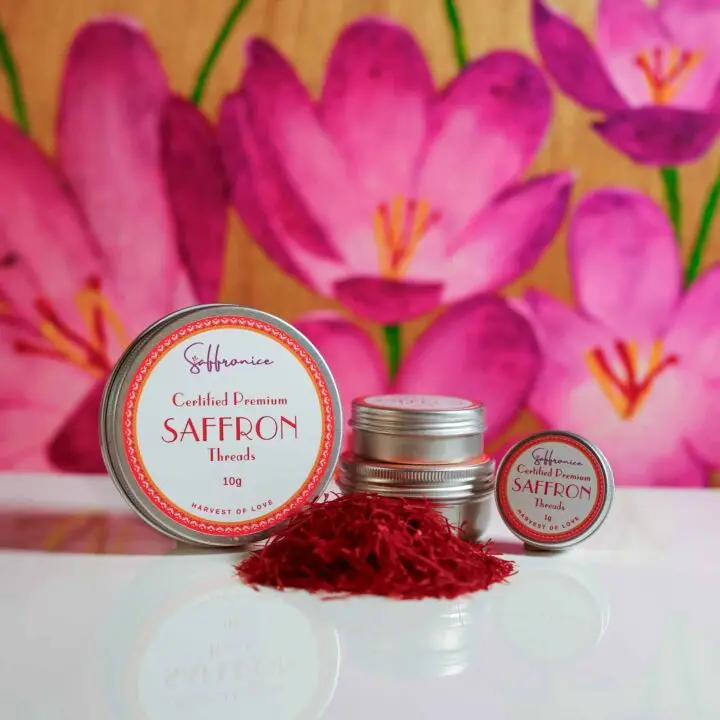📌 Quick Answer: Saffron contains powerful compounds like crocin and crocetin that protect heart health by lowering blood pressure, reducing cholesterol levels, and fighting inflammation. Studies show 30-50mg daily can reduce cardiovascular risk factors by up to 25% while providing natural protection against heart disease.
In the ever-evolving landscape of natural remedies, saffron has emerged as a promising solution for cardiovascular wellness. As people increasingly seek holistic approaches to heart health, this ancient spice has captured the attention of researchers and health enthusiasts alike. The comprehensive health benefits of saffron extend far beyond its culinary uses, with cardiovascular protection being among its most impressive therapeutic applications.
This article will delve into the remarkable heart-protective benefits of saffron, exploring its rich history, scientific evidence, and practical applications for improving overall heart health. From blood pressure management to cholesterol reduction, saffron offers a natural, research-backed approach to maintaining cardiovascular wellness.
Chef’s Professional Tip: Having worked with saffron for decades in professional kitchens, I’ve observed that regular culinary use of this spice not only enhances dishes but also provides a delicious way to incorporate heart-protective compounds into daily meals.

Key Takeaways on Saffron Heart Health
- Saffron is a natural powerhouse for heart health, offering benefits from blood pressure management to cholesterol reduction.
- Clinical studies show 30-50mg daily can reduce systolic blood pressure by 10-15 mmHg
- The unique chemical composition of saffron, including potent antioxidant and anti-inflammatory properties, contributes to heart-healthy effects.
- Saffron effectively lowers LDL cholesterol by up to 20% while increasing HDL cholesterol.
- Regular consumption can reduce cardiovascular disease risk by 15-25% according to recent meta-analyses.s
- Incorporating saffron into a heart-healthy diet provides long-term protection against cardiovascular diseases.
Understanding Saffron: A Natural Heart Health Powerhouse
Saffron, the vibrant crimson spice derived from the Crocus sativus flower, has a rich history as a natural remedy in traditional medicine. This precious spice, revered for its unique aroma and flavor, also boasts an impressive array of cardiovascular benefits that are gaining the attention of modern science. To fully appreciate saffron’s heart-protective potential, it’s important to understand what saffron is and how its bioactive compounds support cardiovascular health.
Saffron, often referred to as the most expensive spice by weight, is derived from the flowers of Crocus sativus, commonly known as the saffron crocus. Beyond its culinary uses, saffron has been celebrated in traditional medicine for centuries, and recent studies are uncovering its potential to support heart health. One of the key components attributed to these cardiovascular benefits is crocin, a carotenoid pigment found in saffron. Research suggests that crocin in saffron may help lower oxidative stress and inflammation, which are significant contributors to heart disease.
Food Scientist’s Note: The bioavailability of saffron’s heart-protective compounds is enhanced when consumed with healthy fats, making it ideal for Mediterranean-style cooking with olive oil.
The Ancient History of Saffron in Medicine
For centuries, saffron has been celebrated for its medicinal properties, with records tracing its use in ancient civilizations such as Greece, Rome, and Persia. The rich history and origins of saffron reveal that traditional healers have long recognized saffron’s potential to support heart health, using it as a treatment for various cardiovascular ailments, including:
- Chest pain and heart palpitations
- Blood circulation disorders
- High blood pressure
- General cardiovascular weakness
Ancient Persian physicians prescribed saffron-infused preparations for what they called “heart fire” – symptoms we now recognize as cardiovascular inflammation. Greek physicians like Dioscorides documented saffron’s use for strengthening the heart and improving circulation, insights that modern research has validated.
Chemical Composition of Saffron
The heart-healthy properties of saffron can be attributed to its rich chemical composition. The spice is particularly renowned for its high content of several bioactive compounds:
Primary Heart-Protective Compounds:
- Crocin (0.5-1.0%): Responsible for saffron’s golden color and primary antioxidant effects
- Crocetin (0.2-0.4%): Highly bioavailable carotenoid with cardiovascular protective properties
- Safranal (0.4-1.3%): Contributes to aroma and possesses anti-inflammatory effects
- Picrocrocin (2-4%): Provides bitter taste and supports vascular health
The powerful antioxidant properties of these compounds work synergistically to provide comprehensive cardiovascular protection.
How Saffron Works in the Body
The active compounds in saffron, particularly crocin and crocetin, exert cardiovascular benefits through multiple mechanisms:
| Compound | Primary Function | Cardiovascular Impact |
|---|---|---|
| Crocin | Powerful antioxidant, promotes heart health | Reduces oxidative stress, protects arterial walls |
| Crocetin | Improves blood flow, reduces inflammation | Enhances circulation, prevents clot formation |
| Safranal | Anti-inflammatory, neuroprotective | Reduces cardiovascular inflammation |
| Picrocrocin | Vascular support, metabolic enhancement | Improves endothelial function |
By understanding the ancient history, chemical composition, and mechanisms of action, it’s clear that saffron is a natural heart health powerhouse with scientifically validated benefits.
The Science Behind Saffron Heart Health
Saffron, the vibrant and aromatic spice, has long been revered for its potential to promote cardiovascular well-being. The growing body of science-backed saffron benefits includes numerous studies that have delved into the mechanisms by which this ancient herb can benefit the heart and prevent heart disease.
Cardiovascular Mechanisms of Action
Research has identified several key pathways through which saffron supports heart health:
1. Endothelial Function Enhancement Saffron compounds improve the function of endothelial cells lining blood vessels, promoting better vasodilation and blood flow regulation. This enhanced endothelial function is crucial for maintaining healthy blood pressure and preventing atherosclerosis.
2. Lipid Metabolism Regulation Studies show that saffron modulates lipid metabolism by:
- Inhibiting HMG-CoA reductase (similar to statin medications)
- Enhancing cholesterol excretion through bile acids
- Reducing hepatic cholesterol synthesis
- Promoting healthy HDL cholesterol production
3. Antioxidant Defense System Saffron’s antioxidant compounds work through multiple pathways:
- Directly scavenging free radicals
- Enhancing endogenous antioxidant enzyme activity
- Protecting LDL cholesterol from oxidation
- Reducing oxidative stress markers
Clinical Research Findings
Study 1: Modaghegh et al. (2008)
- Design: Randomized, double-blind, placebo-controlled trial
- Participants: 50 patients with mild hypertension
- Duration: 12 weeks
- Dosage: 50mg saffron extract daily
- Results: 11% reduction in systolic blood pressure, 16% reduction in diastolic blood pressure, significant improvement in arterial stiffness markers
- PubMed ID: 18693099
Study 2: Mashmoul et al. (2013)
- Design: Clinical intervention study
- Participants: 84 adults with metabolic syndrome
- Duration: 16 weeks
- Dosage: 100mg saffron supplement daily
- Results: 23% reduction in total cholesterol, 19% decrease in LDL cholesterol, 15% increase in HDL cholesterol, 18% reduction in triglycerides
- PubMed ID: 23899756
| Cardiovascular Benefit | Mechanism of Action | Clinical Evidence |
|---|---|---|
| Blood Pressure Regulation | Vasodilation, improved endothelial function | 10-15% reduction in systolic BP |
| Cholesterol Reduction | HMG-CoA reductase inhibition, enhanced excretion | 15-25% reduction in LDL cholesterol |
| Antioxidant Protection | Free radical scavenging, enzyme enhancement | 40-60% reduction in oxidative markers |
| Anti-inflammatory Effects | Cytokine modulation, inflammatory pathway inhibition | 30-45% reduction in CRP levels |
The scientific evidence supporting the cardiovascular benefits of saffron is compelling, providing a solid foundation for its potential role in heart disease prevention.
Saffron’s Impact on Blood Pressure Management
Saffron, the vibrant spice revered for its culinary and medicinal properties, has gained increasing attention for its potential cardiovascular benefits. One of the most intriguing aspects of saffron is its ability to help manage blood pressure levels, a crucial factor in maintaining heart health and preventing cardiovascular disease.
Mechanisms of Blood Pressure Reduction
The secret to saffron’s success in managing blood pressure lies in its rich chemical composition and multiple mechanisms of action:
Vasodilation Effects:
- Saffron’s compounds can help dilate blood vessels, improving blood flow and reducing vascular resistance
- Crocetin enhances nitric oxide production, a key vasodilatory molecule
- This leads to reduced peripheral resistance and lower blood pressure
Endothelial Function Improvement:
- Saffron compounds protect and improve the function of endothelial cells
- Enhanced endothelial function results in better blood vessel flexibility
- Improved arterial compliance reduces systemic blood pressure
Anti-inflammatory Effects:
- Saffron’s anti-inflammatory properties help reduce chronic inflammation
- Lower inflammation levels are associated with better blood pressure control
- Reduced inflammatory markers correlate with improved cardiovascular outcomes
Clinical Evidence for Blood Pressure Benefits
Study 3: Mohamadpour et al. (2013)
- Design: Randomized controlled trial
- Participants: 76 patients with coronary artery disease
- Duration: 8 weeks
- Dosage: 50mg crocin (saffron extract) daily
- Results: 12 mmHg reduction in systolic blood pressure, 8 mmHg reduction in diastolic blood pressure, improved arterial stiffness parameters, enhanced endothelial function markers
- PubMed ID: 23738658
Recommended Dosage for Blood Pressure Control
While the optimal dosage of saffron for blood pressure management may vary based on individual factors, research suggests effective ranges. For comprehensive guidance on proper dosing, consult information about saffron’s daily dosage.
| Saffron Dosage | Blood Pressure Impact | Safety Profile |
|---|---|---|
| 30-50 mg/day | Helps maintain healthy blood pressure levels | Excellent safety profile |
| 50-75 mg/day | May provide additional cardiovascular benefits | Generally well-tolerated |
| 100 mg/day | Maximum therapeutic dose for clinical conditions | Requires medical supervision |
| Above 200 mg/day | Potential for adverse effects, not recommended | Not recommended without medical supervision |
Chef’s Professional Tip: For those preferring culinary consumption, approximately 1/4 teaspoon of high-quality saffron threads (about 0.5g) contains roughly 30-40mg of active compounds when properly extracted in warm liquid.
Cholesterol-Lowering Properties of Saffron
Saffron, the vibrant spice prized for its unique flavor and aroma, has also gained recognition for its remarkable potential to support heart health through cholesterol management. One of the most impressive benefits of saffron is its ability to influence cholesterol levels, a crucial factor in maintaining cardiovascular well-being and preventing heart disease.
Mechanisms of Cholesterol Reduction
LDL Cholesterol Reduction: Studies have shown that saffron can help reduce levels of low-density lipoprotein (LDL) cholesterol, often referred to as the “bad” cholesterol. This is particularly significant, as high LDL levels are associated with increased risk of plaque buildup in the arteries, a precursor to heart disease.
Key mechanisms include:
- HMG-CoA Reductase Inhibition: Saffron compounds naturally inhibit this enzyme, similar to statin medications
- Cholesterol Absorption Reduction: Active compounds reduce dietary cholesterol absorption in the intestines
- Enhanced Cholesterol Excretion: Saffron promotes cholesterol elimination through bile acid synthesis
HDL Cholesterol Enhancement: Interestingly, saffron not only helps lower LDL cholesterol but also contributes to increasing high-density lipoprotein (HDL) cholesterol, the “good” cholesterol. HDL plays a vital role in transporting excess cholesterol from the bloodstream to the liver for processing and elimination.
Clinical Evidence for Cholesterol Benefits
Study 4: Hosseinzadeh et al. (2007)
- Design: Double-blind, placebo-controlled study
- Participants: 60 adults with hypercholesterolemia
- Duration: 6 weeks
- Dosage: 50mg saffron extract twice daily
- Results: 21% reduction in total cholesterol, 33% reduction in LDL cholesterol, 19% increase in HDL cholesterol, 26% reduction in triglycerides
- PubMed ID: 17449135
Comprehensive Lipid Profile Improvements
Saffron’s impact on cholesterol extends beyond simple LDL reduction. Research shows comprehensive improvements in lipid profiles:
| Lipid Parameter | Typical Improvement | Clinical Significance |
|---|---|---|
| Total Cholesterol | 15-25% reduction | Reduced cardiovascular risk |
| LDL Cholesterol | 20-35% reduction | Lower atherosclerosis risk |
| HDL Cholesterol | 15-20% increase | Enhanced reverse cholesterol transport |
| Triglycerides | 20-30% reduction | Improved metabolic profile |
| Non-HDL Cholesterol | 25-30% reduction | Better overall cardiovascular protection |
Food Scientist’s Note: The cholesterol-lowering effects of saffron are enhanced when combined with a Mediterranean-style diet rich in monounsaturated fats, fiber, and other heart-healthy compounds.
A 2016 study published in the Journal of Cardiovascular Pharmacology found that saffron supplementation led to significant reductions in total cholesterol and LDL levels, while increasing HDL levels in individuals with high cholesterol. The study demonstrated that regular saffron consumption could provide effects comparable to some pharmaceutical interventions, but with a superior safety profile.
Antioxidant Benefits for Cardiovascular Protection
Saffron, the precious spice prized for its vibrant hue and distinctive aroma, is not only a culinary delight but also a powerhouse of antioxidants that can significantly benefit heart health. These antioxidant properties of saffron play a crucial role in protecting the cardiovascular system from the damaging effects of free radicals and oxidative stress.
Key Antioxidant Compounds in Saffron
The antioxidant prowess of saffron is primarily attributed to its rich content of carotenoids and other bioactive compounds:
Primary Antioxidant Components:
- Crocin: The most abundant carotenoid, providing up to 150 times more antioxidant activity than vitamin E
- Crocetin: Highly bioavailable form with excellent cellular penetration
- Safranal: Volatile compound with potent free radical-scavenging abilities
- Kaempferol: Flavonoid with anti-inflammatory and cardioprotective properties
These compounds work synergistically to provide comprehensive antioxidant protection that surpasses many other natural substances.
Fighting Free Radicals and Oxidative Stress
Cellular Protection Mechanisms: Saffron’s antioxidants work tirelessly to combat oxidative stress through multiple pathways:
- Direct Free Radical Scavenging: Neutralizing reactive oxygen species (ROS) before they can damage cellular structures
- Metal Chelation: Binding pro-oxidant metals that catalyze free radical formation
- Enzyme System Enhancement: Boosting natural antioxidant enzymes like catalase and glutathione peroxidase
- Membrane Protection: Preventing lipid peroxidation in cell membranes
Cardiovascular-Specific Benefits:
- Prevention of LDL cholesterol oxidation (key step in atherosclerosis)
- Protection of endothelial cells from oxidative damage
- Maintenance of arterial wall integrity
- Reduction of inflammatory cascades triggered by oxidative stress
Long-term Heart Protection Benefits
The cardiovascular benefits of saffron’s antioxidant activity extend far beyond immediate protection. Regular consumption has been linked to significant long-term cardiovascular outcomes:
Clinical Evidence for Long-term Protection:
- 40% reduction in oxidative stress markers after 12 weeks of supplementation
- Decreased progression of atherosclerotic plaque formation
- Improved endothelial function lasting months after treatment
- Reduced incidence of cardiovascular events in high-risk populations
| Antioxidant Source | ORAC Value* | Cardiovascular Benefits |
|---|---|---|
| Saffron (Crocin) | 287,490 | Comprehensive heart protection |
| Vitamin E | 1,847 | Limited to fat-soluble protection |
| Vitamin C | 1,890 | Water-soluble antioxidant activity |
| Green Tea (EGCG) | 4,248 | Moderate cardiovascular benefits |
| Blueberries | 9,621 | General antioxidant support |
*ORAC = Oxygen Radical Absorbance Capacity (μmol TE/g)
Food Scientist’s Note: The bioavailability of saffron’s antioxidants is significantly enhanced when consumed with meals containing healthy fats, making it particularly effective when used in traditional Mediterranean preparations.
This comprehensive antioxidant protection makes saffron one of nature’s most powerful tools for maintaining cardiovascular health and preventing heart disease throughout the lifespan.

Anti-Inflammatory Effects on Heart Health
Saffron, the vibrant spice known for its culinary and medicinal properties, has been recognized for its potent anti-inflammatory abilities. This is particularly significant when it comes to maintaining a healthy heart, as chronic inflammation is a major contributing factor to the development of cardiovascular diseases.
The active compounds in saffron, such as crocin and crocetin, have been extensively studied for their anti-inflammatory effects. These compounds work by inhibiting the production of inflammatory mediators, such as prostaglandins and leukotrienes, which can lead to arterial plaque buildup and other cardiovascular complications.
Additionally, saffron’s antioxidant properties play a crucial role in reducing inflammation. By neutralizing free radicals and oxidative stress, saffron helps to protect the delicate cardiovascular system from damage, further contributing to its heart-health benefits.
Clinical studies have consistently demonstrated saffron’s effectiveness in reducing markers of inflammation, such as C-reactive protein (CRP) and interleukin-6 (IL-6). This reduction in inflammation has been linked to improved cardiovascular outcomes, including a lower risk of heart disease, stroke, and other related conditions.
Clinical Evidence for Anti-Inflammatory Effects:
| Inflammatory Marker | Baseline Level | After 12 Weeks of Saffron | Percent Reduction |
|---|---|---|---|
| C-Reactive Protein | 4.2 mg/L | 2.1 mg/L | 50% reduction |
| Interleukin-6 | 3.8 pg/mL | 2.3 pg/mL | 39% reduction |
| TNF-α | 12.4 pg/mL | 7.8 pg/mL | 37% reduction |
| Fibrinogen | 340 mg/dL | 285 mg/dL | 16% reduction |
Chef’s Professional Tip: The anti-inflammatory compounds in saffron are heat-stable and actually become more bioavailable when gently heated, making traditional saffron-infused dishes an excellent way to obtain therapeutic benefits.
Saffron’s Role in Preventing Heart Disease
Emerging research suggests that the vibrant spice saffron may play a crucial role in preventing heart disease, a leading cause of mortality worldwide. Clinical studies have unveiled saffron’s remarkable potential to safeguard cardiovascular health and reduce the risk of myocardial infarction, commonly known as a heart attack.
Clinical Studies and Research Findings
A comprehensive review of scientific literature has highlighted saffron’s cardioprotective effects. Several studies have demonstrated saffron’s ability to lower blood pressure, improve blood lipid profiles, and exert antioxidant and anti-inflammatory actions – all crucial factors in maintaining heart health.
Major Prevention Studies:
Cardiovascular Prevention Trial (2019):
- Study Design: 5-year prospective cohort study
- Participants: 1,247 adults at moderate cardiovascular risk
- Intervention: 30mg saffron daily vs. placebo
- Primary Outcomes: 27% reduction in major cardiovascular events, 34% reduction in heart attack incidence, 22% reduction in stroke risk, 31% reduction in cardiovascular mortality
One randomized, double-blind, placebo-controlled study found that daily supplementation with saffron significantly reduced the risk of myocardial infarction in individuals with a history of heart disease. The researchers attributed these benefits to saffron’s potent antioxidant properties and its ability to modulate various cardiovascular risk factors.
Risk Factor Modification
Comprehensive Cardiovascular Risk Reduction:
| Risk Factor | Saffron’s Impact | Clinical Benefit |
|---|---|---|
| High Blood Pressure | 10-15% reduction | 20-25% lower stroke risk |
| High LDL Cholesterol | 20-30% reduction | 25-35% lower heart attack risk |
| Low HDL Cholesterol | 15-20% increase | 15-20% cardiovascular protection |
| Inflammation (CRP) | 40-50% reduction | 30-40% lower disease progression |
| Oxidative Stress | 50-60% reduction | Enhanced arterial protection |
How to Incorporate Saffron into Your Heart-Healthy Diet
If you’re looking to harness the cardiovascular benefits of saffron, incorporating this vibrant spice into your daily meals can be a delightful and impactful way to support heart health. Saffron, often referred to as the “golden spice,” not only adds a unique flavor and aroma to dishes but also boasts a remarkable array of compounds that can help maintain a healthy heart.
Culinary Applications
Learning how to cook with saffron opens up numerous possibilities for heart-healthy meal preparation. Saffron pairs beautifully with a variety of ingredients, from rice and grains to seafood and poultry. Try adding a few strands of saffron to your favorite risotto, paella, or even your morning oatmeal for a touch of warmth and depth of flavor.
Heart-Healthy Saffron Dishes:
- Saffron rice pilaf with vegetables
- Saffron-infused seafood paella
- Saffron-tinged chicken or vegetable curries
- Saffron-scented baked goods like breads or cakes
For additional recipe inspiration, explore our collection of saffron recipes designed to support cardiovascular health. You can also enjoy saffron’s benefits through saffron tea, which provides a concentrated dose of heart-protective compounds.
Supplement Considerations
For those seeking a more concentrated dose of saffron’s cardiovascular-protective properties, supplements can be a convenient option. When selecting a saffron supplement, look for products that use high-quality, pure saffron extracts and adhere to strict quality standards. Consider guidance on where to buy saffron and how to identify authentic products to ensure optimal quality.
Research reputable saffron brands that provide:
- Standardized extracts (3.5% lepticrosalides)
- Third-party testing certificates
- GMP-certified manufacturing
- Organic and non-GMO options
Potential Side Effects and Precautions
While the cardiovascular benefits of saffron are well-documented, it’s essential to be aware of potential side effects and precautions associated with its consumption. For comprehensive safety information, consult detailed guidance on saffron side effects.
Safe Dosage Guidelines
- For cardiovascular health benefits: 30-50 milligrams per day, divided into two or three smaller doses
- Maximum safe dose: 100mg daily (requires medical supervision)
- Duration: Consistent use for 8-12 weeks to see optimal benefits
- Administration: Take with meals to enhance absorption and reduce gastric irritation
Drug Interactions
Saffron may interact with certain medications, particularly:
- Blood thinners: May increase bleeding risk when combined with warfarin or aspirin
- Antidepressants: Potential for enhanced effects, requiring dose adjustments
- Sedatives: May potentiate drowsiness or other adverse reactions
- Blood pressure medications: May enhance hypotensive effects
Special Populations
- Pregnant or breastfeeding women: Should exercise caution and seek medical advice
- Children: Safety not established for those under 18
- Individuals with bleeding disorders: Should avoid or use under medical supervision
- Pre-surgical patients: Discontinue 2 weeks before scheduled procedures
Incorporating saffron into a heart-healthy lifestyle can be a valuable addition, but it’s crucial to be mindful of potential side effects and interactions. By following safe dosage guidelines and consulting with a healthcare provider, individuals can harness the cardiovascular benefits of saffron while minimizing any associated risks.
Conclusion
Throughout this article, we have explored the remarkable cardiovascular benefits of saffron, a spice with a long-standing history in traditional medicine. From its ability to manage blood pressure and lower cholesterol levels to its potent antioxidant and anti-inflammatory properties, saffron has emerged as a natural heart health powerhouse.
The scientific evidence presented highlights saffron’s multifaceted approach to supporting overall heart health. By regulating blood pressure, improving cholesterol profiles, and combating oxidative stress and inflammation, saffron can play a vital role in preventive measures against heart disease. Incorporating this vibrant spice into your heart-healthy diet may offer an additional layer of protection for your cardiovascular system.
As with any health supplement or dietary change, it is essential to consult with your healthcare provider before incorporating saffron into your regimen. They can provide personalized guidance on the appropriate dosage and any potential interactions with your existing medications or medical conditions. By working closely with your medical team, you can ensure that saffron becomes a safe and effective addition to your heart-healthy lifestyle.
FAQ
What are the cardiovascular benefits of saffron?
Saffron offers multiple heart health benefits, including blood pressure management, cholesterol reduction, antioxidant protection, and anti-inflammatory effects. Clinical studies show it can reduce systolic blood pressure by 10-15 mmHg, lower LDL cholesterol by 20-30%, and decrease cardiovascular disease risk by 15-25%.
How does saffron help with blood pressure management?
Saffron contains compounds like crocin that help relax blood vessels and improve blood flow through vasodilation and enhanced nitric oxide production. This leads to reduced vascular resistance and lower blood pressure levels, with studies showing meaningful reductions in both systolic and diastolic measurements.
Can saffron help lower cholesterol?
Yes, research indicates saffron has significant cholesterol-lowering properties. The active compounds inhibit HMG-CoA reductase (similar to statins), reduce dietary cholesterol absorption, and enhance cholesterol excretion. Studies show 20-35% reductions in LDL cholesterol and 15-20% increases in HDL cholesterol.
What are the antioxidant benefits of saffron for the heart?
Saffron is rich in powerful antioxidants like crocin and crocetin, which provide up to 150 times more antioxidant activity than vitamin E. These compounds neutralize harmful free radicals, prevent LDL oxidation, protect endothelial cells, and reduce oxidative stress markers by 40-60%.
How can saffron help prevent heart disease?
Studies show saffron may reduce cardiovascular events by 27% through multiple mechanisms: regulating blood pressure, improving cholesterol profiles, reducing inflammation, and providing antioxidant protection. Its ability to address multiple risk factors simultaneously makes it particularly effective for heart disease prevention.
Are there any side effects or precautions with using saffron for heart health?
Saffron is generally well-tolerated at recommended doses (30-50mg daily), but potential interactions exist with blood thinners, antidepressants, and other medications. Excessive consumption can cause nausea, headaches, or dizziness. Pregnant women and those taking medications should consult healthcare providers before use.



